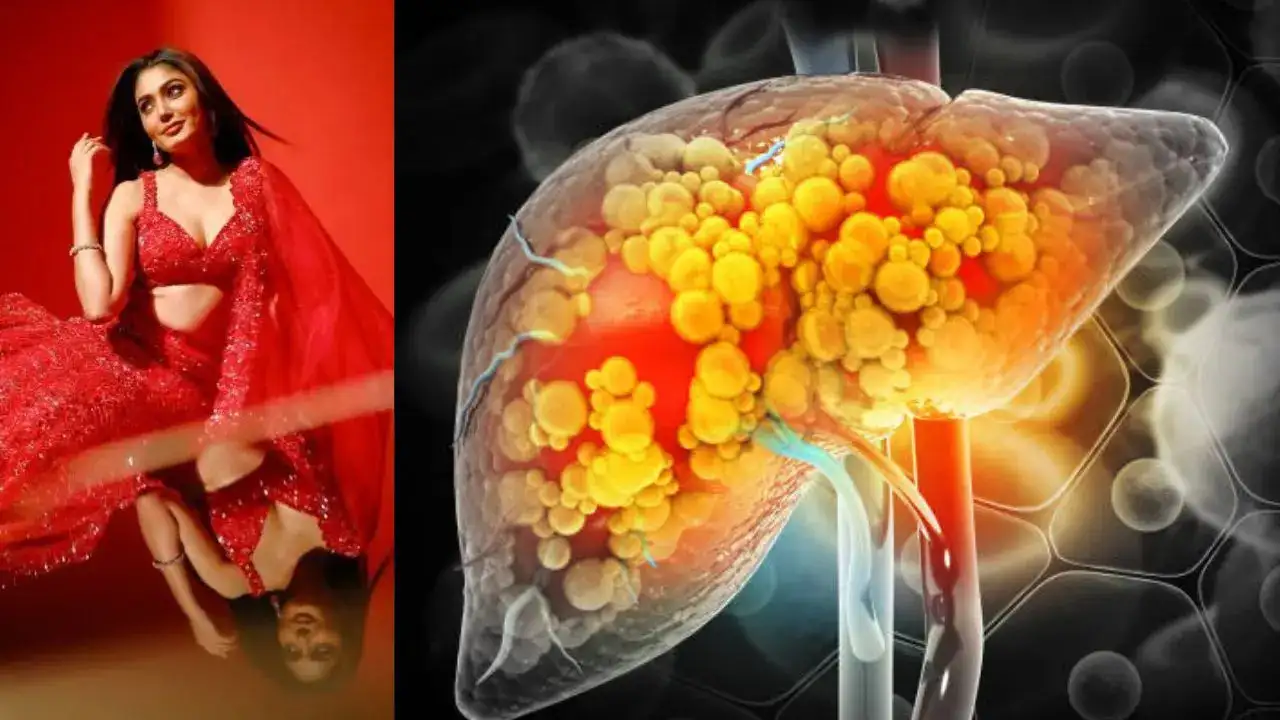
Sana is battling the advanced stage of the autoimmune hepatitis she has been dealing with for some time
Actor and reality television star Sana Makbul, who recently revealed she was diagnosed with liver cirrhosis, hopes to get treated without getting a transplant done. Makbul, who was admitted to hospital after her condition worsened earlier this month, is battling the advanced stage of the autoimmune hepatitis she has been dealing with for some time.
“I’ve been living with autoimmune hepatitis for a while now, but recently things got worse. My immune system started attacking my liver more aggressively, and I’ve now been diagnosed with liver cirrhosis,” she said in an earlier interview with Hindustan Times. “But I’m trying to stay strong and take one day at a time.” Sana shared that she has started her immunotherapy and is focusing on her recovery,” she added.
What is liver cirrhosis?
Cirrhosis of the liver is late-stage liver disease in which healthy liver tissue gradually gets replaced with scar tissue. It happens as a result of long-term, chronic hepatitis – inflammation in your liver, which has many causes. When inflammation is ongoing, your liver attempts to repair itself by scarring. But too much scar tissue prevents your liver from working properly.
According to doctors, cirrhosis is a progressive condition that worsens as more and more scar tissue develops. In the beginning, your body adjusts to compensate for your reduced liver function, and you might not notice it too. However, eventually, as your liver function declines further, you will begin to experience noticeable symptoms.
Does immunotherapy help treat cirrhosis?
According to the American Cancer Society, immunotherapy for liver cancer can enhance cancer-fighting immune system responses but may not always be available or viable for patients with a history of hepatitis infection, as it can also damage normal, functioning liver cells.
Doctors say immunotherapy is a class of treatments that take advantage of a person’s own immune system to help kill cancer cells. Most immunomodulators target the PD-L1 pathway and are approved, in combination with bevacizumab, as a first-line treatment for subsets of patients with advanced liver cancer. Several other immunotherapies are currently being tested in clinical trials, including oncolytic viruses and adoptive cell therapy.
Who qualifies for liver cancer immunotherapy?
According to doctors, immunotherapy is mainly done when a person is battling advanced liver cancer – but if you have early-stage or other types, you may be suggested different treatments first.
Also, it is not good or effective for those with a history of hepatitis or liver damage, as it harms healthy liver cells. Since about 80 per cent of liver cancer cases come from hepatitis, not everyone can get immunotherapy.
What are the potential side effects of immunotherapy?
A few common side effects may include fatigue, fever, cough, nausea, itching, rash, loss of appetite, and muscle or joint pain. However, more severe reactions are possible:
Infusion reactions
Allergy reactions during drug administration, including fever, chills, rash, dizziness, and breathing difficulties.
Autoimmune reactions
Removal of immune system safeguards can lead to the immune system attacking other organs, potentially causing serious or life-threatening issues.
Serious side effects are observed more frequently with ipilimumab than with PD-1 and PD-L1 inhibitors. Prompt reporting of new side effects to healthcare professionals is crucial, and in case of serious complications, treatment may be halted, with high-dose corticosteroids to suppress the immune system if needed. Understanding these nuances is vital for informed decisions and effective liver cancer management.
